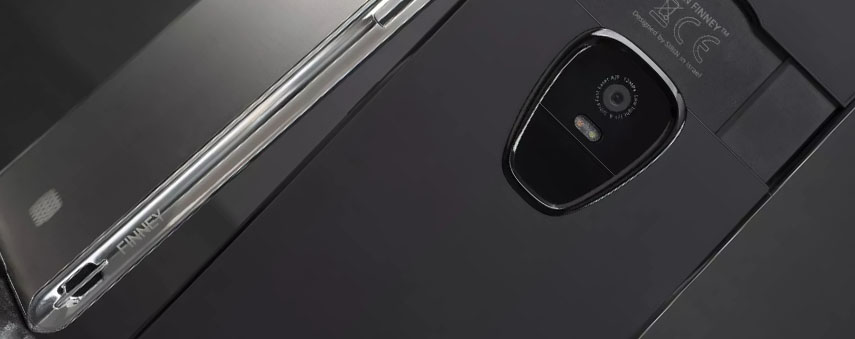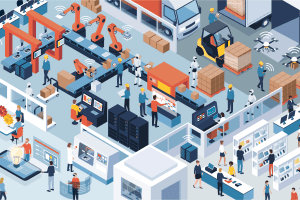Finney: Check out the world’s first Blockchain smartphone

Credit: Sirin Labs
Launching in Bangladesh to begin with, Finney is a blockchain-enabled smartphone with a second screen. Is this the advent of a brand new Web 3.0 world?
First, there was Web 1.0, where World Wide Web users of the nineties could view static pages of information. Then came Web 2.0 and the rise of user-generated content, from MySpace to Friends Reunited, and all the profits and problems of social media that followed.
As we approach the end of the 2010s, 5G is set to cloak us all; machine learning is accelerating the development of tech and the internet – a luxury that has spread from our desks to our pockets – is now a standard technology to find in kitchen appliances, drones and cars.
We’re pretty sure that Web 3.0 arrived somewhere in the midst of all this, but it’s hard to say exactly what Web 3.0 is since the internet is no longer restricted to desktop computers. For some, Web 3.0 represents the rise of blockchain and all the buzzwords that follow it. “Peer to peer”, “decentralisation” and “ICO” are all keywords of a new world: one in which blockchain enthusiasts claim that security is a cornerstone.

With blockchain set to conquer IoT, there are endless avenues for this relatively young technology to explore. It’s possible for social media to integrate blockchain for a more secure network. It’s even possible for architecture to use blockchain: for example, what if you had to pay to sit a bench?
Usually, new technology is integrated into familiar technology before a raft of innovations captures our imagination. The smartphone market could be the most sensible route for blockchain to embrace, IoT wise.
What does the Finney do?
In 2016, Sirin Labs launched a $16,000 smartphone in front of an audience that included Hollywood royalty. A year later, the company had reportedly laid off a third of the staff and discontinued the handset.
At $1,000, the Finney is considerably cheaper than its predecessor. However, you won’t even be able to buy one without SRN, Sirin’s own cryptocurrency. The Finney has been made possible by Sirin successfully completing the fourth largest crowdsale in history, with $157.8M being raised.
Apart from the blockchain aspect, everything is pretty normal-sounding for a smartphone for the Finney: it runs Sirin OS – an “ultra-secure and Google-certified” version of Android 8.1 – and it’s powered by a Snapdragon 845, is accompanied by 6GB of RAM and has 128GB of expandable storage.
Before the Finney, you needed a ledger, you needed a computer, you needed wallet software and then you needed to go to an exchange, and then you could convert. The Finney does all of this in one phone.
Moshe Hogeg, Co-Founder and Co-CEO of Sirin Labs
The company claims that the Finney is the only smartphone in the world secure and safe enough to hold cryptographic coins, with a cold storage crypto wallet. It has a unique privacy violation alert system and it secures not just every transaction but every communication made through the phone.
The phone also handles P2P resource sharing, which is a boost for anyone concerned about the amount of data that centralised apps can store on us. The Finney also boasts encrypted communications.
The phone has a fee-less transaction system to allow its user to securely send and receive payments. This is a phone that has plenty of benefits for the cryptocurrency enthusiast and is likely to capture the imagination of anyone with a passion for blockchain.
Will the Finney catch on?
Sirin Labs are launching the Finney in a curious fashion. It will first be sold in Bangladesh.
According to a report last year from GSMA Intelligence, 75% of the country’s population (138 million) will have smartphones by 2025. With the $894 Samsung Galaxy S10 reportedly doing extremely well in the Bangladeshi market, there is a lot of hope that the Finney will also be a hit in that area, as the nation is said to be one of the most open and welcome in the world when it comes to high-end mobile technology.
Last month, the Bangladeshi government invested $208 million from the country’s IT project fund in blockchain. The program is set to send 100 graduates to Japan and India for blockchain training, to study the likes of distributed ledger technology, artificial intelligence, machine learning and cybersecurity.
Though the Finney may look a little like it’s targeting a small, crypto-interested demographic, it could well be set to ride a wave in Bangladesh. With the advent of a peer-less web, there’s potential with Sirin Labs’ new phone to put the power back in the hands of smartphone users. The Finney could be just the device to do this.
